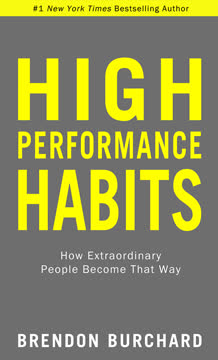つの重要なポイント
1. 感情知能が営業成功においてIQを凌駕する
Sales EQ—営業特有の感情知能—は、対人関係への投資と、パイプラインを通じて機会を進めるという主要な目的の達成を均衡させる。
感情知能は重要である。 営業において、自分自身とステークホルダーの感情を認識し、解釈し、管理する能力は、純粋な知的能力よりも重要である。この営業特有の感情知能(Sales EQ)は、トップパフォーマーに以下のことを可能にする:
- 恐怖、絶望、執着などの破壊的な感情を調整する
- ステークホルダーに共感し、彼らの動機を理解する
- より深く、より本物のつながりを築く
- 複雑な対人関係のダイナミクスをナビゲートする
超高パフォーマー(UHP)は、ステークホルダーとの感情的なつながりを維持しながら、営業目標に集中することに優れている。彼らはSales EQの4つの主要な柱を活用する:
- 共感
- 自己認識
- 自己制御
- 営業ドライブ
これらのスキルを開発することで、営業担当者は、製品やサービスが買い手にとって似ているように見える市場で差別化を図ることができる。
2. 最大の効果を得るために営業、購買、意思決定プロセスを整合させる
これらのプロセスが整合すると、幸運が訪れる。
三つのプロセスを整合させる。 勝利の確率を最大化するために、超高パフォーマーは三つの主要なプロセスを整合させることに焦点を当てる:
- 営業プロセス:販売のための定義されたステップ
- 購買プロセス:見込み客の購入ステップ
- 意思決定プロセス:各ステークホルダーの感情的な旅
ほとんどの営業担当者は自分の営業プロセスにのみ焦点を当て、他の二つを無視する。この不整合は以下を引き起こす:
- 機会の喪失
- 取引の停滞
- ステークホルダーのフラストレーション
UHPは、購買プロセスを自分の営業プロセスに合わせ、主要なステークホルダーの個々の意思決定プロセスを慎重に管理する。この整合は、取引を締結するためのスムーズでほぼ偶然のような道を作り出す。
整合のための戦略には以下が含まれる:
- 見込み客の購買旅の早い段階で関与する
- 柔軟性のない購買プロセスを再構築するためのレバレッジを使用する
- 個々のステークホルダーの意思決定の旅をマッピングし、影響を与える
3. ステークホルダーにとって最も重要な五つの質問をマスターする
これらは営業において最も重要な五つの質問である。超高パフォーマーはこれを理解している。彼らはステークホルダーと最初に接触した瞬間から取引が成立するまで、これらの五つの質問に対して肯定的な「はい」を得ることに集中している!
五つの重要な質問が意思決定を駆動する。 営業プロセス全体を通じて、ステークホルダーは無意識のうちに以下の五つの重要な質問を自分自身に問いかけている:
- あなたが好きか?
- あなたは私の話を聞いてくれるか?
- あなたは私を重要だと感じさせてくれるか?
- あなたは私と私の問題を理解しているか?
- あなたを信頼し、信じることができるか?
UHPはこれらの五つの質問に対して「はい」と答えることに執拗に集中する。彼らは以下の方法でこれを行う:
- 本物のラポールと感情的なつながりを築く
- アクティブリスニングと深い共感を実践する
- ステークホルダーを価値ある存在と感じさせ、理解されていると感じさせる
- 専門知識と問題解決能力を示す
- 約束を一貫して守る
これらの質問の一つでも対処しないと、他の分野でどれだけうまくやっても取引が頓挫する可能性がある。特に信頼は、現状維持バイアスの強力な引力を克服するための要である。
4. マイクロコミットメントを活用して勝利の確率を形作る
ステークホルダーがマイクロコミットメントを行い、それを実行するたびに、そのコミットメントと一致するように価値観と信念体系をシフトさせる必要があるため、認知的不協和を減らす。
小さなステップが大きなコミットメントにつながる。 UHPは、マイクロコミットメントの力を理解しており、ステークホルダーの行動を形作り、勝利の確率を高めるためにこれを活用する。営業プロセス全体で一連の小さくて簡単に行えるコミットメントを確保することで、営業担当者は以下を行うことができる:
- 大きなコミットメントに向けての勢いを築く
- ステークホルダーのエンゲージメントと投資を増やす
- 変化への抵抗を克服する
マイクロコミットメントは、以下の二つの主要な心理原則に基づいて機能する:
- 一貫性:人々は過去の行動と一致するように行動する強い動機を持っている。
- 認知的不協和:人々は行動に一致するように信念を調整し、精神的な不快感を減らす。
マイクロコミットメントの例には以下が含まれる:
- 次の会議に同意する
- 追加のステークホルダーへのアクセスを提供する
- 内部データや文書を共有する
- 製品デモやトライアルに参加する
これらの小さなコミットメントを慎重に計画することで、UHPは最終的な購入決定を自然でほぼ必然的な次のステップのように感じさせる。
5. ステークホルダーの言語を話してより深いつながりを築く
他人の言語を話すと、彼らはあなたを自分たちのグループに引き込む。
言語は強力なつながりを生む。 UHPは、ステークホルダーの言語、専門用語、コミュニケーションスタイルを採用することが、信頼を築き、理解を示すために重要であることを認識している。これには以下が含まれる:
- 業界特有の用語を学ぶ
- ステークホルダーの独自のフレーズや略語を採用する
- コミュニケーションスタイルをミラーリングする(例:フォーマル vs. カジュアル)
ステークホルダーの言語を話すことの利点:
- ラポールと好感度を築く
- 共感と理解を示す
- ステークホルダーの認知負荷を減らす
- メッセージをより記憶に残り、影響力のあるものにする
このスキルをマスターするために:
- ディスカバリー会話中に注意深く聞く
- 使用された特定のフレーズや用語について詳細なメモを取る
- 業界の専門用語や一般的な略語を調査する
- ステークホルダーの言語をコミュニケーションに取り入れる練習をする
覚えておいてください:目標は模倣することではなく、自然で本物の方法で言語を採用することです。
6. 異議を信頼構築の機会として受け入れる
異議は嫌なものだ。
異議をポジティブに捉え直す。 異議は個人的な攻撃のように感じることがあるが、UHPはこれを以下の機会として捉える:
- 専門知識を示す
- より深い信頼を築く
- 隠れた懸念を明らかにする
- 価値提案を強化する
異議を「克服」しようとするのではなく、抵抗を生むため、UHPは異議を逆転させるための五段階のフレームワークを使用する:
- 中断せずに完全に聞く
- 懸念に共感し、正当化する
- 明確化のための質問をする
- 異議を再構築する
- 解決策を協力して見つける
重要な心構えの変化:
- 異議はしばしば拒絶ではなく、関与を示す
- 多くの異議は変化への恐怖(現状維持バイアス)から生じる
- 信頼は異議に対する最も強力な解毒剤である
異議を営業プロセスの自然な一部として受け入れることで、UHPは潜在的な取引の障害を関係強化の瞬間に変えることができる。
7. 自信を持って断定的に尋ねることで、より多くの取引を成立させる
断定的な立場は世界で最も強力な販売戦略である。
自信は伝染する。 取引を成立させる際には、何を尋ねるかよりも、どのように尋ねるかが重要である。UHPは「断定的な尋ね方」の技術をマスターし、以下を行う:
- 揺るぎない自信を投影する
- 断定的な言語を使用する
- 合意が自然な次のステップであると仮定する
効果的な尋ね方の三つの鍵:
- 自信を持って尋ね、望むものを得ると仮定する
- 黙る(尋ねた後の沈黙を許容する)
- 異議に対処する準備をする
断定的な言語と弱い言語の例:
-
弱い: 「前進することについてどう思いますか?」
-
断定的: 「書類を始めましょう。」
-
弱い: 「デモをスケジュールしたいですか?」
-
断定的: 「来週の火曜日の午後2時にデモの空きがあります。それで大丈夫ですか?」
自信を持って断定的に尋ねることで、UHPは取引に対する信念をステークホルダーに伝え、合意が自然で期待される結果のように感じさせる。
最終更新日:
FAQ
What's Sales EQ about?
- Emotional Intelligence Focus: Sales EQ by Jeb Blount emphasizes the role of emotional intelligence in sales, particularly how it can be leveraged to close complex deals.
- Human Behavior Insights: The book explores human psychology, cognitive biases, and emotional triggers that influence both salespeople and buyers.
- Practical Strategies: It provides actionable strategies and frameworks to enhance emotional intelligence and improve sales outcomes.
Why should I read Sales EQ?
- Improve Sales Performance: The book offers insights into the emotional dynamics of selling, crucial for enhancing sales performance.
- Real-World Applications: Filled with real-life examples and case studies, it illustrates emotional intelligence principles in action.
- Competitive Edge: Mastering the concepts can differentiate you from average salespeople, positioning you as an ultra-high performer.
What are the key takeaways of Sales EQ?
- Emotions Drive Decisions: People act on emotion and justify with logic, a key insight for tailoring sales approaches.
- Continuous Engagement: The importance of maintaining engagement with stakeholders through micro-commitments is emphasized.
- Managing Emotions: Techniques for regulating disruptive emotions are discussed to help maintain focus and effectiveness.
What is the concept of Sales EQ in Sales EQ?
- Definition: Sales EQ is the ability to manage your own disruptive emotions while accurately interpreting and responding to others' emotions.
- Four Pillars: Empathy, self-awareness, self-control, and sales drive are the foundational pillars of Sales EQ.
- Performance Impact: High Sales EQ differentiates ultra-high performers from average salespeople, enhancing relationship-building and deal closure.
How does Sales EQ address the buying process?
- Buying Process Mapping: Understanding and aligning with the prospect's buying process is crucial for increasing win probability.
- Micro-Commitments: Testing engagement through small steps helps gauge interest and willingness to move forward.
- Avoiding Stalled Deals: Strategies are provided to prevent deals from stalling by ensuring clear next steps.
What is the BASIC stakeholder mapping in Sales EQ?
- BASIC Framework: BASIC stands for Buyers, Amplifiers, Seekers, Influencers, and Coaches, helping identify stakeholder roles.
- Role Understanding: Each role, from decision-makers to information gatherers, is crucial for strategic engagement.
- Tailored Approaches: Mapping stakeholders allows for tailored engagement strategies, increasing success likelihood.
What is the Five-Step Objection Turnaround Framework in Sales EQ?
- Relate to Concerns: Start by relating to the stakeholder's concerns to lower defenses.
- Clarify and Isolate: Clarify the objection and isolate the real issue to prevent misunderstandings.
- Minimize Concerns: Shift perspectives by minimizing fears and highlighting benefits.
- Ask Again: Confidently ask for commitment again, reinforcing solution value.
- Fallback Request: Have a fallback request ready to maintain momentum if hesitation persists.
What are some strategies for managing disruptive emotions in Sales EQ?
- Awareness of Triggers: Identify emotional triggers and understand their impact on behavior.
- Preparation and Practice: Thorough preparation and practice can mitigate anxiety and improve performance.
- Positive Visualization: Use positive visualization techniques to build confidence and reduce negative emotions.
What role does trust play in Sales EQ?
- Foundation of Relationships: Trust is the foundation of successful sales relationships, crucial for engagement and commitment.
- Building Trust: Consistent actions, keeping promises, and genuine care build trust.
- Trust and Win Probability: High trust levels increase win probability, as stakeholders feel comfortable making decisions.
How does Sales EQ define emotional intelligence in sales?
- Emotional Awareness: Recognizing and understanding one's own emotions and those of others is crucial.
- Managing Emotions: Managing disruptive emotions like fear and desperation is emphasized for better performance.
- Relationship Building: High emotional intelligence leads to stronger relationships and better sales outcomes.
What are some effective questioning techniques from Sales EQ?
- Open-Ended Questions: Encourage stakeholders to share insights through open-ended questions.
- Statement and Pause: Use statements followed by pauses to prompt elaboration.
- Avoid Interrogation: Ensure questions feel natural and conversational to build rapport.
What are the best quotes from Sales EQ and what do they mean?
- "People buy for their reasons, not yours.": Emphasizes understanding the buyer's perspective and motivations.
- "Sales is about influencing change.": Reflects the role of a salesperson as a trusted advisor, not just a transaction facilitator.
- "Never leave a meeting without a next step.": Reinforces the importance of maintaining momentum and clarity in the sales process.
レビュー
『Sales EQ』は、主に肯定的な評価を受けており、読者はセールスにおける感情知能に関する洞察を称賛している。多くの人々が、傾聴、関係構築、買い手の心理理解に関する実践的なアドバイスを高く評価している。一部の読者は本の構成や繰り返しに対して批判的であるが、他の人々はその内容がセールスキャリアにおいて変革的であると感じている。レビューでは、従来のセールステクニックに頼るのではなく、見込み客と感情的に繋がることに焦点を当てている点が強調されている。この本は、パフォーマンスを向上させ、より強固なクライアント関係を築きたいと考えるセールスプロフェッショナルに一般的に推奨されている。
Similar Books























